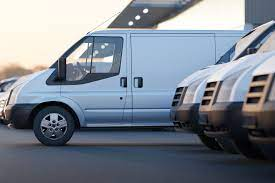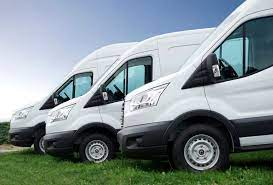
Choosing a van for your business
If you want to make a good decision, choosing a van can be incredibly difficult. A wide range of manufacturers today offer an almost limitless number of customisation options.
Make a list. Before visiting a dealer or looking at websites, take the time to consider what you really need. Spending a minute to define your requirements will save you hours and allow suppliers to make a detailed proposal. You will save more time if you are more specific.

Paying by payload. When ordering a van you will be paying by kilos. It is therefore important to think about what the van will carry. Are you looking for a spaceship to transport bulky but not very heavy items or a load-lugger that will be burdened with heavy cargos? This can affect the type of van that you choose, as well as its height, length and payload capacity. This will also influence your choice of engine and bulkhead.
Fuel For Thought. Diesel is still the preferred choice for commercial vehicles. It offers a balance between power, flexibility and reliability while also being economical. However, its days may be numbered with current government plans. Although the proposed ban on new petrol and diesel cars is still some years away, preparations can begin now, as more alternative fuel vehicles are being sold, including plug-in hybrids, pure electric vans, and other vehicles. You should base your decisions on the total cost of ownership and type or use. Plug-in hybrids can be particularly beneficial in urban areas. For Van Hire Bristol, visit Autolyne, a Van Hire Bristol provider.
Safety First. A cost-effective fleet is a safe fleet. Safety-first can help protect your drivers and balance sheet. Crashes and damage that could have been avoided add thousands to the cost of vehicle operation each year. Dashcams and telematics provide vital insights into the causes of accidents and possible solutions to minimise on-road risks. Axle weight and driver fatigue monitors are also useful tools to protect your business. Safety should be considered when choosing vehicles. Equipment such as reversing sensors and autonomous emergency brakes could pay for themselves in reduced costs.

Equipped to handle anything. Making the right choices in specifying your van will make it more effective and efficient on the road while protecting its value. Discussions with van drivers are beneficial to understand how they use their vans and what common problems they encounter. It could be anything from the drivetrain (including 4×4), to the comfort of drivers or operational concerns. Air conditioning and cruise controls, for example, could benefit drivers. Built-in generators or compressors, on the other hand, might make employees more productive.
